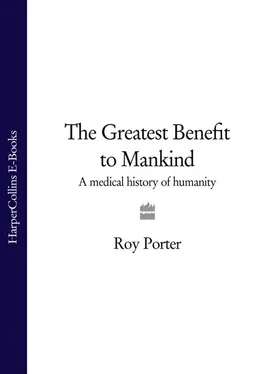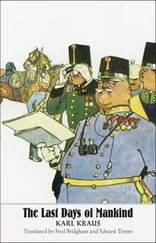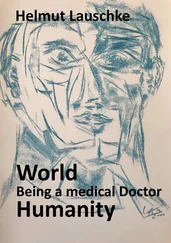I discuss disease from a global viewpoint; no other perspective makes sense. I also examine medicine the world over. Chapter 2surveys the emergence of health practices and medical beliefs in some early societies; Chapter 3discusses the rise of formal, written medicine in the Middle East and Egypt, and in Greece and Rome; Chapter 4explores Islam; separate chapters discuss Indian and Chinese medicine; Chapter 8takes in the Americas; Chapter 15surveys medicine in more recent colonial contexts, and other chapters have discussions of disorders in the Third World, for instance deficiency diseases. The book is thus not narrowly or blindly ethnocentric.
Nevertheless, I devote most attention to what is called ‘western’ medicine, because western medicine has developed in ways which have made it uniquely powerful and led it to become uniquely global. Its ceaseless spread throughout the world owes much, doubtless, to western political and economic domination. But its dominance has increased because it is perceived, by societies and the sick, to ‘work’ uniquely well, at least for many major classes of disorders. (Parenthetically, it can be argued that western political and economic domination owes something to the path-breaking powers of quinine, antibiotics and the like.) To the world historian, western medicine is special. It is conceivable that in a hundred years time traditional Chinese medicine, shamanistic medicine or Ayurvedic medicine will have swept the globe; if that happens, my analysis will look peculiarly dated and daft. But there is no real indication of that happening, while there is every reason to expect the medicine of the future to be an outgrowth of present western medicine – or at least a reaction against it. What began as the medicine of Europe is becoming the medicine of humanity. For that reason its history deserves particular attention.
Western medicine, I argue, has developed radically distinctive approaches to exploring the workings of the human body in sickness and in health. These have changed the ways our culture conceives of the body and of human life. To reduce complex matters to crass terms, most peoples and cultures the world over, throughout history, have construed life (birth and death, sickness and health) primarily in the context of an understanding of the relations of human beings to the wider cosmos: planets, stars, mountains, rivers, spirits and ancestors, gods and demons, the heavens and the underworld, and so forth. Some traditions, notably those reflected in Chinese and Indian learned medicine, while being concerned with the architecture of the cosmos, do not pay great attention to the supernatural. Modern western thinking, however, has become indifferent to all such elements. The West has evolved a culture preoccupied with the self, with the individual and his or her identity, and this quest has come to be equated with (or reduced to) the individual body and the embodied personality, expressed through body language. Hamlet wanted this too solid flesh to melt away. That – except in the context of slimming obsessions – is the last thing modern westerners want to happen to their flesh; they want it to last as long as possible.
Explanations of why and how these modern, secular western attitudes have come about need to take many elements into account. Their roots may be found in the philosophical and religious traditions they have grown out of. They have been stimulated by economic materialism, the preoccupation with worldly goods generated by the devouring, reckless energies of capitalism. But they are also intimately connected with the development of medicine – its promise, project and products.
Whereas most traditional healing systems have sought to understand the relations of the sick person to the wider cosmos and to make readjustments between individual and world, or society and world, the western medical tradition explains sickness principally in terms of the body itself – its own cosmos. Greek medicine dismissed supernatural powers, though not macrocosmic, environmental influences; and from the Renaissance the flourishing anatomical and physiological programmes created a new confidence among researchers that everything that needed to be known could essentially be discovered by probing more deeply and ever more minutely into the flesh, its systems, tissues, cells, its DNA.
This has proved an infinitely productive inquiry, generating first knowledge and then power, including on some occasions the power to conquer disease. The idea of probing into bodies, living and dead (and especially human bodies) with a view to improving medicine is more or less distinctive to the European medical tradition. For reasons technical, cultural, religious and personal, it was not done in China or India, Mesopotamia or pharaonic Egypt. Dissection and dissection-related experimentation were performed only on animals in classical Greece, and rarely. A medicine that seriously and systematically investigated the stuff of bodies came into being thereafter – in Alexandria, then in the work of Galen, then in late medieval Italy. The centrality of anatomy to medicine’s project was proclaimed in the Renaissance and became the foundation stone for the later edifice of scientific medicine: physiological experimentation, pathology, microscopy, biochemistry and all the other later specialisms, to say nothing of invasive surgery.
This was not the only course that medicine could have taken; as is noted below, it was not the course other great world medical systems took, cultivating their own distinct clinical skills, diagnostic arts and therapeutic interventions. Nor did it enjoy universal approval: protests in Britain around 1800 about body-snatching and later antivivisectionist lobbies show how sceptical public opinion remained about the activities of anatomists and physicians, and suspicion has continued to run high. That was the direction, however, which western medicine followed, and, bolstered by science at large, it generated a powerful momentum, largely independent of its efficacy as a rational social approach to good health.
The emergence of this high-tech scientific medicine may be a prime example of what William Blake denounced as ‘single vision’, the kind of myopia which (literally and metaphorically) comes from looking doggedly down a microscope. Single vision has its limitations in explaining the human condition; this is why Coleridge called doctors ‘ shallow animals’, who ‘imagine that in the whole system of things there is nothing but Gut and Body’. Hence the ability of medicine to understand and counter pathology has always engendered paradox. Medicine has offered the promise of ‘the greatest benefit to mankind’, but not always on terms palatable to and compatible with cherished ideals. Nor has it always delivered the goods. The particular powers of medicine, and the paradoxes which its rationales generate, are what this book is about.
It may be useful to offer a brief resumé of the main themes of the book, by way of a sketch map for a long journey.
All societies possess medical beliefs: ideas of life and death, disease and cure, and systems of healing. Schematically speaking, the medical history of humanity may be seen as a series of stages. Belief systems the world over have attributed sickness to illwill, to malevolent spirits, sorcery, witchcraft and diabolical or divine intervention. Such ways of thinking still pervade the tribal communities of Africa, the Amazon basin and the Pacific; they were influential in Christian Europe till the ‘age of reason’, and retain a residual shadow presence. Christian Scientists and some other Christian sects continue to view sickness and recovery in providential and supernatural terms; healing shrines like Lourdes remain popular within the Roman Catholic church, and faith-healing retains a mass following among devotees of television evangelists in the United States.
Читать дальше












